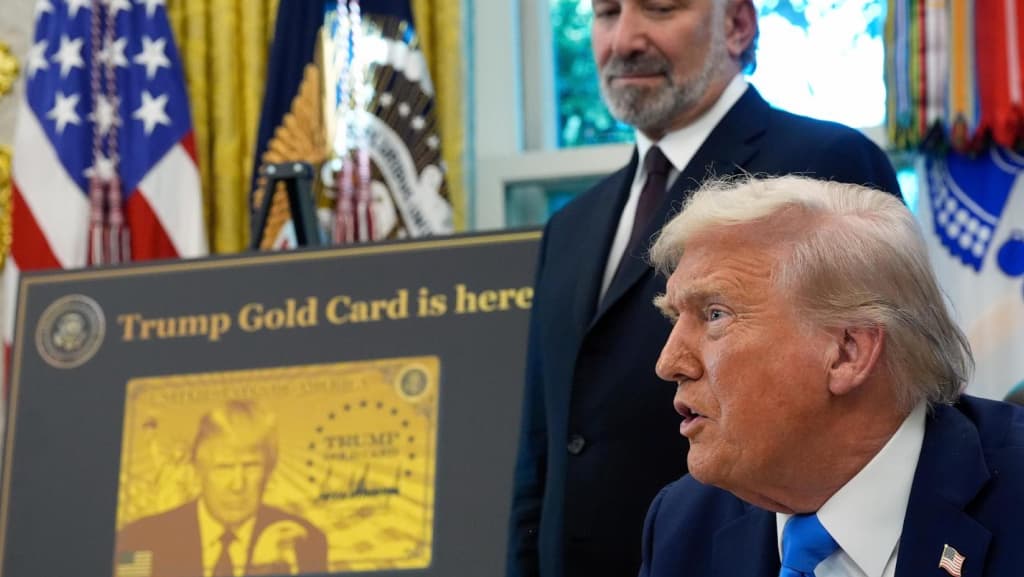
Trump’s $100,000 H-1B Visa Fee Move Faces Legal Challenges
The order raises costs for skilled foreign workers’ employers and could spark a high-stakes legal battle over presidential powers.
President Donald Trump’s order imposing a $100,000 fee on new H-1B visas for highly skilled foreign workers is almost certain to draw legal challenges, potentially setting up a battle over the future of the programme and the president’s authority to bar non-citizens from entering the United States.
What is the H-1B Programme?
Created in 1990, the H-1B programme allows businesses to employ foreign workers in specialist occupations such as engineering or medical research for three to six years. Employers must first make efforts to recruit American workers and must pay H-1B recipients the same wages they would pay to Americans in equivalent roles. The programme offers 65,000 visas annually, with a further 20,000 available to workers holding advanced degrees.
The technology industry relies heavily on H-1B workers and is often the focus of criticism that the programme displaces American workers. However, the visas are also widely used in finance, consulting, healthcare and academia.
Do Companies Already Pay Fees for H-1B Visas?
Employers sponsoring H-1B workers typically pay between $2,000 and $5,000 in fees, depending on the size of the company and other factors. This includes about $1,000 in filing and registration fees and $500 for “fraud prevention and detection”. Companies can pay $2,805 for expedited processing of an application, and often spend thousands more on external legal support to navigate the process.
What Does Trump’s Order Do?
Trump’s September 19 proclamation imposes an additional fee of $100,000 for new H-1B applications and directs the US State Department to issue visas only to employers who pay it. The order also prevents H-1B recipients from entering the United States unless their sponsoring employer has made the payment. The administration has clarified that the order does not apply to existing H-1B holders or to applications submitted before September 21.
Can the President Do That?
Trump’s order is unprecedented and its legal validity remains uncertain. Federal immigration law authorises US Citizenship and Immigration Services (USCIS), which processes visa applications, to collect fees, but only those necessary to cover administrative costs. Experts suggest that since the existing fee structure was authorised by Congress and adjusted periodically by USCIS through formal regulations, the president is unlikely to have the power to impose an additional fee independently.
In the proclamation, Trump cited his authority to restrict the entry of foreign nationals if detrimental to the country’s interests. The US Supreme Court in the 2018 case Trump v. Hawaii upheld a travel ban targeting several Muslim-majority countries on national security grounds, affirming broad presidential powers. Yet, legal experts note that the national security justification in that case differs significantly from Trump’s economic reasoning for the $100,000 fee, which may attract less judicial deference.
Are Lawsuits Likely?
Several immigrant advocacy and business groups have declared the proclamation unlawful and indicated they may sue to block it, alongside any implementing regulations. Likely claims would argue that Trump lacks the authority to impose the policy and that the fee is arbitrarily high, making it unlawful. USCIS and the State Department may also face challenges for failing to follow required rulemaking procedures, such as cost analysis and public consultation.
The ambiguity surrounding aspects of the fee -- such as its application when a visa holder changes employers or how payments are to be processed -- could strengthen claims that the policy is arbitrary and undermines the statutory framework created by Congress, according to legal experts.
Are Other Changes Being Made to the Programme?
On September 23, the Trump administration proposed a significant reform to the way H-1B recipients are selected. Currently, the government uses a random lottery to allocate visas, as applications far exceed the 85,000 annual cap. Under the new proposal, the lottery would be weighted to favour higher-income workers, which the administration argues would reduce the replacement of American workers with lower-paid foreign labour.
For any enquiries please fill out this form, or contact info@thelawreporters.com and Follow The Law Reporters on WhatsApp Channels